
Wine Marketing Strategy: Unearthing the Secrets of Successful Branding
In the multifaceted world of wine, standing out from the crowd is essential for success. Wine marketing plays a crucial role in attracting and retaining customers, differentiating your brand, and fostering loyalty. With a well-crafted marketing strategy, wine producers can tap into the ever-evolving tastes and preferences of consumers, elevating their brand to new heights. In this article, we delve into the secrets of successful wine branding, providing insights to help you create a distinctive and memorable lifestyle brand identity.
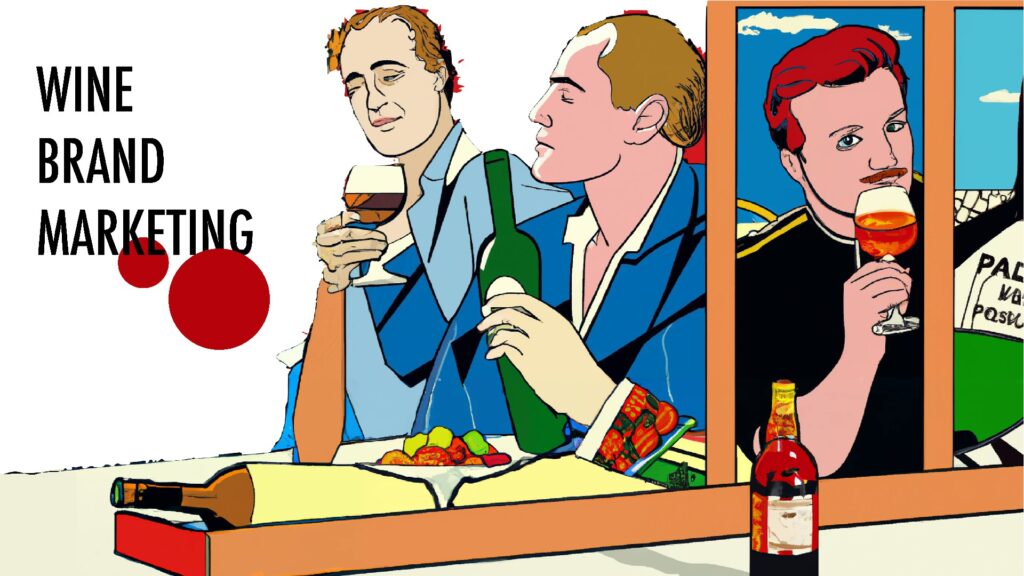
1. Understanding Your Target Audience
A strong wine marketing strategy hinges on knowing your target audience. Dive deep into your customer demographics, analyzing factors such as age, gender, income level, and preferences for grape varieties, production techniques, or wine regions. This knowledge will guide your branding and marketing efforts, ensuring you effectively communicate with potential customers and appeal to their specific tastes.
2. Defining Your Brand’s Unique Selling Proposition (USP)
In an increasingly competitive market, identifying what sets your wine apart is crucial. Your USP could be a focus on a particular grape variety like Chardonnay or Pinot Noir, an innovative production technique such as biodynamic farming, or a commitment to sustainable practices. Whatever your angle, ensure that your wine marketing consistently conveys this unique offering, setting your brand apart from the competition.
3. Creating a Compelling Visual Identity
Your visual identity plays a significant role in capturing the attention of potential customers, making it essential for wine marketing success. Invest in high-quality design and photography that showcases your brand story and product offering. From your logo to your label design, a cohesive and visually appealing aesthetic can create a lasting impression.
4. Developing an Engaging Brand Story
A captivating brand story is integral to fostering an emotional connection with your audience. Share the history and heritage of your winery, the passion behind your wine production, and the personalities who bring your brand to life. Infuse your story with authenticity, giving your customers a reason to engage with your brand beyond the product itself.
5. Embracing Digital Marketing Channels
In the digital age, wine marketing must leverage online channels to reach and engage with consumers. Develop a user-friendly website, maintain an active presence on social media platforms, and consider targeted email campaigns to keep customers informed about new releases, events, or promotions. Utilize search engine optimization (SEO) and content marketing strategies to ensure your brand is easily discoverable online.
6. Partnering with Industry Influencers
Collaborating with wine influencers and bloggers can help boost your brand’s credibility and reach. Identify key figures in your niche who align with your brand values, and engage them through product tastings, sponsored content, or event invitations. Influencer marketing can amplify your message and increase awareness among potential customers.
7. Measuring and Optimizing Your Wine Marketing Efforts
A successful wine marketing strategy is one that evolves and adapts. Regularly review your marketing performance, using data and analytics to identify areas of success and improvement. Stay informed about industry trends and emerging consumer behaviors, adjusting your strategy accordingly to ensure continued growth and success.
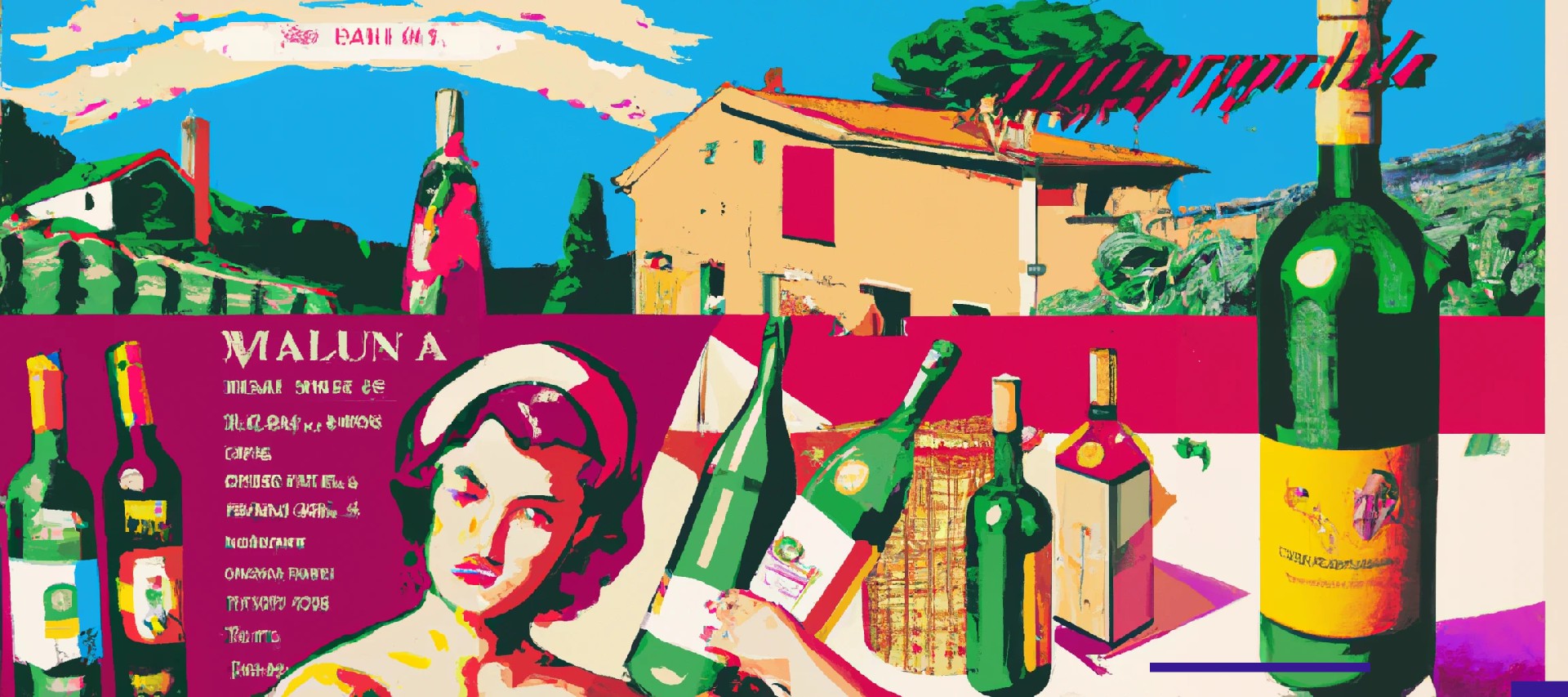
Wine Industry Trends
As the wine industry continues to evolve, staying abreast of emerging trends is essential for wine producers seeking to create a lasting impression on consumers. From shifting consumer preferences to the adoption of new technologies, these trends have a significant impact on wine marketing strategies.
The Rise of Sustainability and Organic Practices
Environmental consciousness is on the rise, and consumers are increasingly seeking out wines produced using sustainable and organic practices. Emphasize your commitment to eco-friendly methods, such as water conservation, biodynamic farming, or reducing your carbon footprint. Incorporate these values into your wine marketing efforts to appeal to environmentally conscious consumers and differentiate your brand.
Millennial and Gen Z Influence
Younger generations are becoming increasingly influential in the wine market, with their preferences and purchasing habits shaping industry trends. Millennials and Gen Z are drawn to unique experiences, authentic stories, and visually appealing packaging. Craft your wine marketing strategy to resonate with these younger demographics by embracing social media, showcasing your brand’s personality, and creating shareable content.
“Wine is bottled poetry.”
– Robert Louis Stevenson
The Importance of Digital Marketing and E-commerce
The digital revolution has transformed the way consumers shop for wine. Online sales and e-commerce platforms have grown exponentially, with consumers seeking the convenience of purchasing wine from the comfort of their homes. Optimize your website for e-commerce, streamline the user experience, and invest in SEO and content marketing to ensure your brand is easily discoverable online.
The Power of Experiences and Events
Today’s consumers value experiences over possessions, and the wine industry is no exception. Wine tourism, tastings, and winery events are on the rise, offering producers a unique opportunity to engage directly with their audience. Incorporate experiential marketing into your wine marketing strategy to create memorable moments that foster brand loyalty and encourage word-of-mouth promotion.
The Growth of Alternative Packaging
Traditional glass bottles are no longer the only option for wine packaging. As sustainability gains traction and consumer preferences evolve, alternative packaging solutions such as cans, bag-in-box, and Tetra Pak are gaining popularity. Explore innovative packaging options that align with your brand values and appeal to your target audience.
The Influence of Wine Critics and Influencers
Wine critics and influencers hold considerable sway over consumer preferences and purchasing decisions. Cultivate relationships with key figures in the wine world who share your brand values and can help amplify your message. Leverage influencer marketing in your wine marketing strategy to boost credibility and increase brand awareness.
The Significance of Food and Wine Pairing
Food and wine pairing has long been a crucial aspect of the wine experience, and this trend shows no sign of waning. Position your brand as a knowledgeable resource by offering expert advice on pairing your wines with various cuisines. Share recipes, tips, and recommendations through blog posts, social media, or email campaigns to engage your audience and showcase your wine’s versatility.
By staying informed about these industry trends and incorporating them into your wine marketing strategy, you’ll be better equipped to adapt and succeed in the ever-changing world of wine. Remember, your brand’s ability to embrace change and meet the evolving needs of consumers is key to remaining competitive and ensuring long-term success.
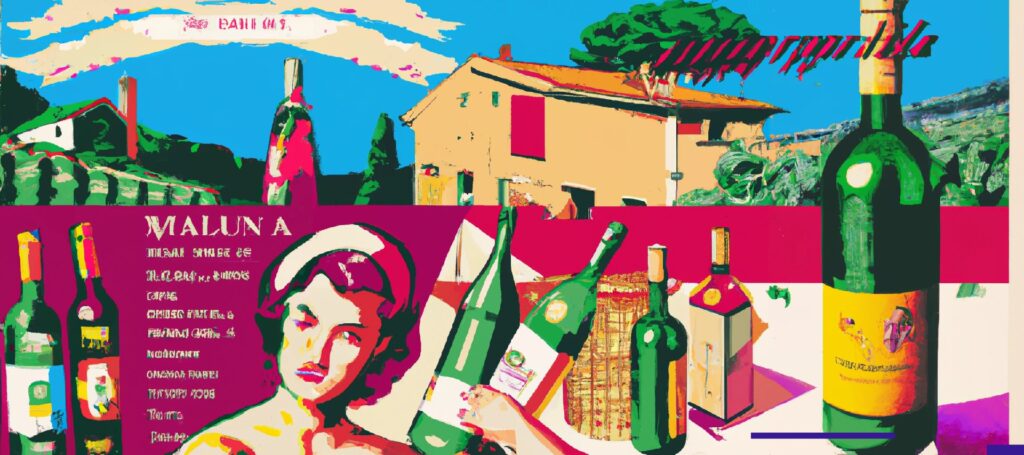
Consumer Behavior in the Wine Industry
Understanding consumer behaviors is crucial for any wine producer looking to create an effective wine marketing strategy. As preferences and purchasing habits evolve, it’s essential to stay informed about the factors that drive consumers to choose one wine over another. In this article, we delve into the key consumer behaviors shaping the wine industry and provide insights to help you connect with your target audience.
1. Emphasis on Quality and Authenticity
Today’s consumers are increasingly discerning when it comes to wine quality and authenticity. They seek out wines that showcase craftsmanship, heritage, and a strong sense of place. Highlight your winemaking process, the history of your vineyard, and your commitment to quality in your wine marketing efforts to resonate with these discerning buyers.
2. Demand for Sustainability and Eco-Friendly Practices
Sustainability is a growing concern for consumers, who are more likely to choose wines produced using environmentally responsible methods. Showcase your winery’s commitment to eco-friendly practices such as organic farming, water conservation, or renewable energy. Make sustainability a core component of your wine marketing strategy to attract eco-conscious consumers and differentiate your brand.
3. The Appeal of Unique and Unusual Wines
Curiosity and adventure drive many wine consumers, who are eager to explore lesser-known grape varieties, regions, and winemaking techniques. Capitalize on this trend by offering a diverse and intriguing portfolio of wines, emphasizing the unique aspects of your offerings in your marketing materials.
4. The Importance of Storytelling and Connection
Consumers are increasingly drawn to brands that tell a compelling story and foster a sense of connection. Share the history, passion, and people behind your winery, weaving a captivating narrative that invites consumers to become part of your wine journey. By fostering emotional connections, you can build brand loyalty and encourage repeat purchases.
5. The Influence of Social Media and Online Reviews
Social media and online reviews play a significant role in shaping consumer behavior. Encourage your customers to share their experiences and post reviews on platforms such as Instagram, Facebook, and Yelp. Engage with your audience through social media, responding to comments and messages promptly to demonstrate your commitment to customer satisfaction.
6. The Role of Price and Value
Price remains an important factor for many consumers when selecting a wine. However, it’s essential to strike a balance between offering competitive pricing and conveying a sense of value. Ensure your wine marketing strategy communicates the quality and craftsmanship behind your wines to justify your pricing and entice buyers.
7. The Desire for Personalized Experiences
Personalization is a growing trend across industries, and the wine market is no exception. Offer personalized experiences such as custom labels, wine club memberships, or curated wine selections to engage your audience and demonstrate your commitment to exceptional customer service.
By understanding these consumer behaviors and incorporating them into your wine marketing strategy, you can better connect with your target audience and meet their evolving needs. Keep a finger on the pulse of industry trends and consumer preferences to ensure your marketing efforts remain relevant and effective, driving success for your winery in the long run.
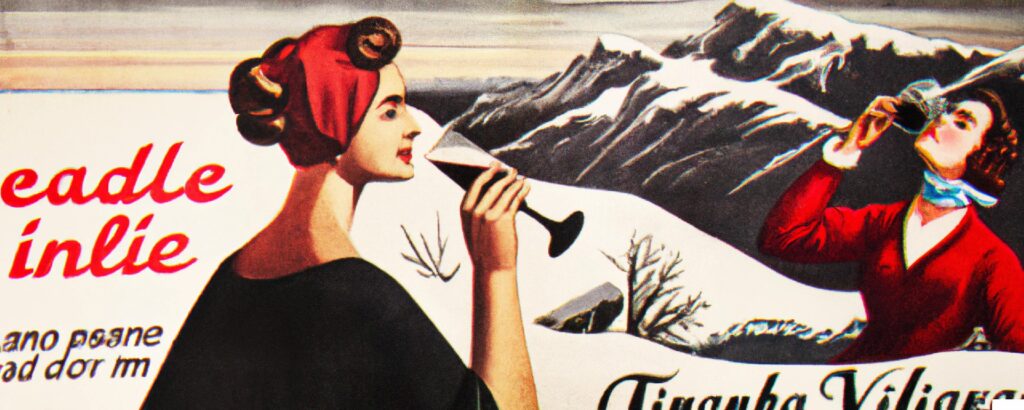
Wine Buyer Personas: Understanding the Different Types of Wine Consumers
In the world of wine marketing, understanding the different types of wine consumers is essential for crafting a strategy that resonates with potential customers. In this article, we introduce five distinct wine buyer types and discuss their preferences and motivations to help you refine your marketing efforts and connect with your target audience.
1. Adventurous Alice
Adventurous Alice is a 38-year-old marketing executive who loves to travel and try new things. She appreciates wines from off-the-beaten-path regions like Georgia or Slovenia and is drawn to unique grape varieties such as Saperavi and Furmint. To appeal to Adventurous Alice, focus on promoting lesser-known wines with a strong sense of place, and share engaging stories about the winemakers and the local culture.
2. Organic Olivia
Organic Olivia is a 34-year-old yoga instructor who prioritizes her health and the environment. She seeks out organic, biodynamic, and natural wines, with a particular fondness for skin-contact whites from Italy’s Friuli-Venezia Giulia region. To resonate with Organic Olivia, highlight your winery’s commitment to sustainable practices and showcase your eco-friendly wines, sharing information about their production methods and benefits.
3. Social Sam
Social Sam is a 29-year-old tech entrepreneur who frequently dines out with friends and relies on recommendations from his social circle when selecting wine. He is active on social media platforms, where he shares his latest wine discoveries and reads reviews from trusted influencers. To engage Social Sam, create shareable social media content, encourage user-generated content, and collaborate with influencers who align with your brand values.
4. Foodie Fiona
Foodie Fiona is a 42-year-old chef who loves experimenting with bold, global flavors in her home kitchen. She is always on the lookout for wines that can stand up to her creative dishes, from spicy Szechuan stir-fries to rich mole sauces. To appeal to Foodie Fiona, offer wine pairings for a wide range of cuisines, create content that explores the art of food and wine pairing, and showcase your wines’ versatility in the culinary realm.
5. Eco-conscious Emily
Eco-conscious Emily is a 35-year-old professional who values sustainability and seeks out organic wines from small, family-owned wineries. She is drawn to brands that prioritize environmental responsibility, fair labor practices, and community engagement. To connect with Eco-conscious Emily, emphasize your winery’s commitment to sustainability, share stories about your eco-friendly practices, and highlight partnerships with like-minded organizations.
By understanding these distinct wine buyer types and their preferences and motivations, you can create targeted marketing strategies that resonate with your audience. By appealing to each buyer type’s unique desires, you’ll be better positioned to attract and engage your ideal customers, driving success for your lifestyle brand in the competitive world of wine.
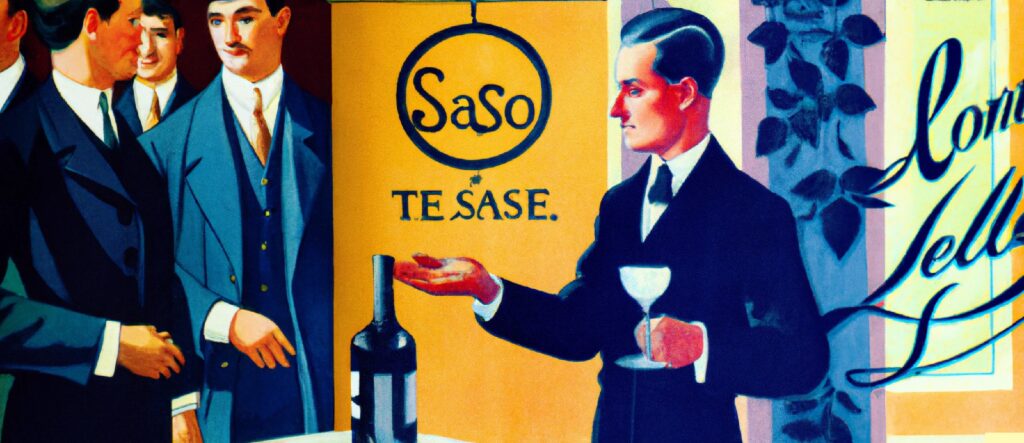
Innovative Wine Brands Making Waves in the Industry
In the ever-evolving world of wine, innovative brands are continually pushing the boundaries and challenging traditional norms. These wineries are making a name for themselves through unique approaches to winemaking, marketing, and consumer engagement. In this article, we showcase five innovative wine brands that are setting new standards and captivating wine enthusiasts around the globe.
Vinomofo
Vinomofo is an Australian-based online wine retailer that has revolutionized the way consumers buy wine. By focusing on building a strong community of wine lovers, they’ve created an engaging and user-friendly platform that offers a curated selection of wines at competitive prices. Vinomofo emphasizes the importance of storytelling, sharing the unique tales behind each wine and winemaker. Additionally, they prioritize sustainability and ethical practices, partnering only with wineries that share these values.
19 Crimes
19 Crimes is a wine brand that has captured the imagination of consumers through its distinctive packaging and engaging storytelling. Each bottle features a historic criminal who was sentenced to exile in Australia, with the label providing an intriguing glimpse into their story. The brand has also incorporated augmented reality technology, allowing consumers to bring the characters to life using a smartphone app. This innovative approach to wine branding has helped 19 Crimes stand out in a crowded market.
Orange Wine Project
The Orange Wine Project is dedicated to promoting and celebrating the unique world of orange (or skin-contact) wines. By sourcing grapes from a variety of regions and experimenting with different winemaking techniques, they create distinctive and diverse wines that challenge traditional notions of white wine. Their striking labels, featuring abstract artwork, further reinforce their commitment to pushing boundaries and embracing the unconventional.
Empathy Wines
Founded by entrepreneur Gary Vaynerchuk and his partners, Empathy Wines is a direct-to-consumer wine brand that places a strong emphasis on transparency, sustainability, and community engagement. By cutting out intermediaries, they’re able to offer high-quality wines at accessible price points, while also sharing the stories of the farmers and winemakers behind each bottle. Empathy Wines leverages social media to connect with consumers, using platforms like Instagram and Twitter to share content and engage with their audience.
Rebel Coast Winery
Rebel Coast Winery is a California-based brand that has made a name for itself through its bold and irreverent approach to winemaking. Their unconventional wine offerings include a cannabis-infused sauvignon blanc and a “Sunday Funday” white blend infused with natural flavors like peach and pineapple. With eye-catching labels and a cheeky brand voice, Rebel Coast is challenging traditional notions of what wine can and should be.
These five innovative wine brands are proof that creativity and bold thinking can make a splash in the world of wine. By embracing new technologies, engaging storytelling, and unique approaches to winemaking, these brands are capturing the attention of wine enthusiasts and setting new standards for the industry. Cheers to innovation and the exciting future of wine!
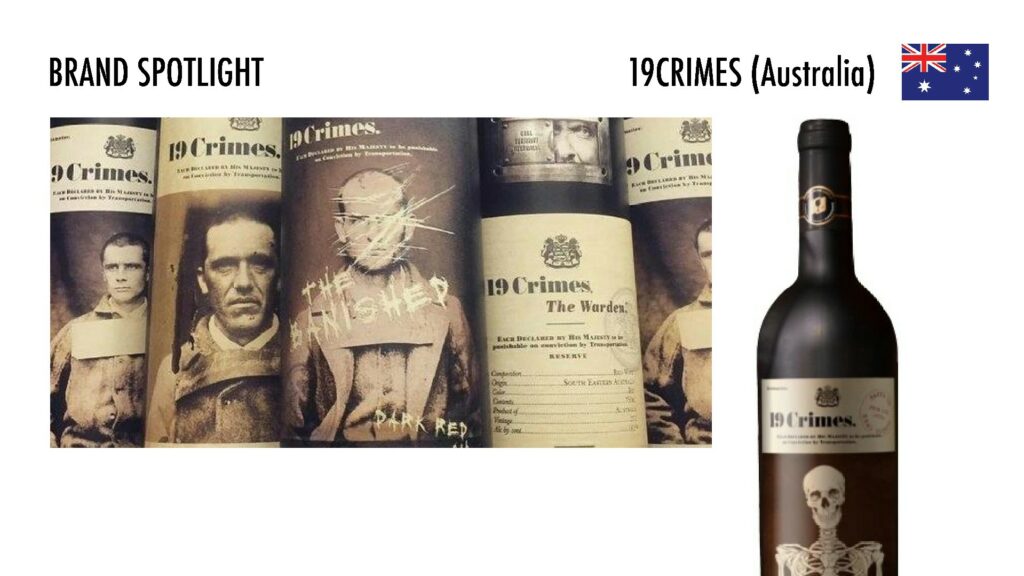
Marketing Strategies for Wine Producers: Combining Traditional and Digital Tactics
In today’s competitive wine market, it’s essential for producers to employ a diverse range of marketing strategies to stand out and connect with their target audience. By combining traditional and digital tactics, you can create a comprehensive and effective marketing plan that drives results. In this article, we explore several key strategies for wine producers, from hosting wine tastings and events to leveraging social media and email marketing.
1. Host Wine Tastings and Events
Wine tastings and events are a tried-and-true method for engaging with consumers and showcasing your wines. These in-person experiences allow potential customers to sample your offerings, learn about your winemaking process, and connect with your brand on a personal level. Consider hosting tastings at your winery or partnering with local wine shops, restaurants, and event spaces to reach a broader audience.
2. Collaborate with Local Businesses
Forming partnerships with local businesses can help elevate your brand and introduce your wines to new customers. Consider collaborating with restaurants, gourmet food producers, or even non-food businesses that share your values and cater to a similar clientele. Joint events, co-branded products, or cross-promotional content can generate buzz and excitement around your brand while supporting your local community and actively help contribute marketing a lifestyle brand in the crowded shelf of wine specialty stores.
3. Leverage Social Media
Social media platforms like Instagram, Facebook, and Twitter offer powerful tools for wine marketing, providing a direct line of communication with your audience. Share eye-catching content that showcases your wines, tells your brand story, and reflects your unique identity. Engage with your followers through comments, direct messages, and user-generated content, fostering a sense of community and loyalty around your brand.
4. Create a Content Marketing Strategy
A well-executed content marketing strategy can help you establish authority, build trust, and drive traffic to your website. Develop engaging, informative, and shareable content that appeals to your target audience, such as blog posts, videos, and infographics. Focus on topics that showcase your expertise and align with your brand values, like winemaking techniques, food pairings, or sustainable practices.
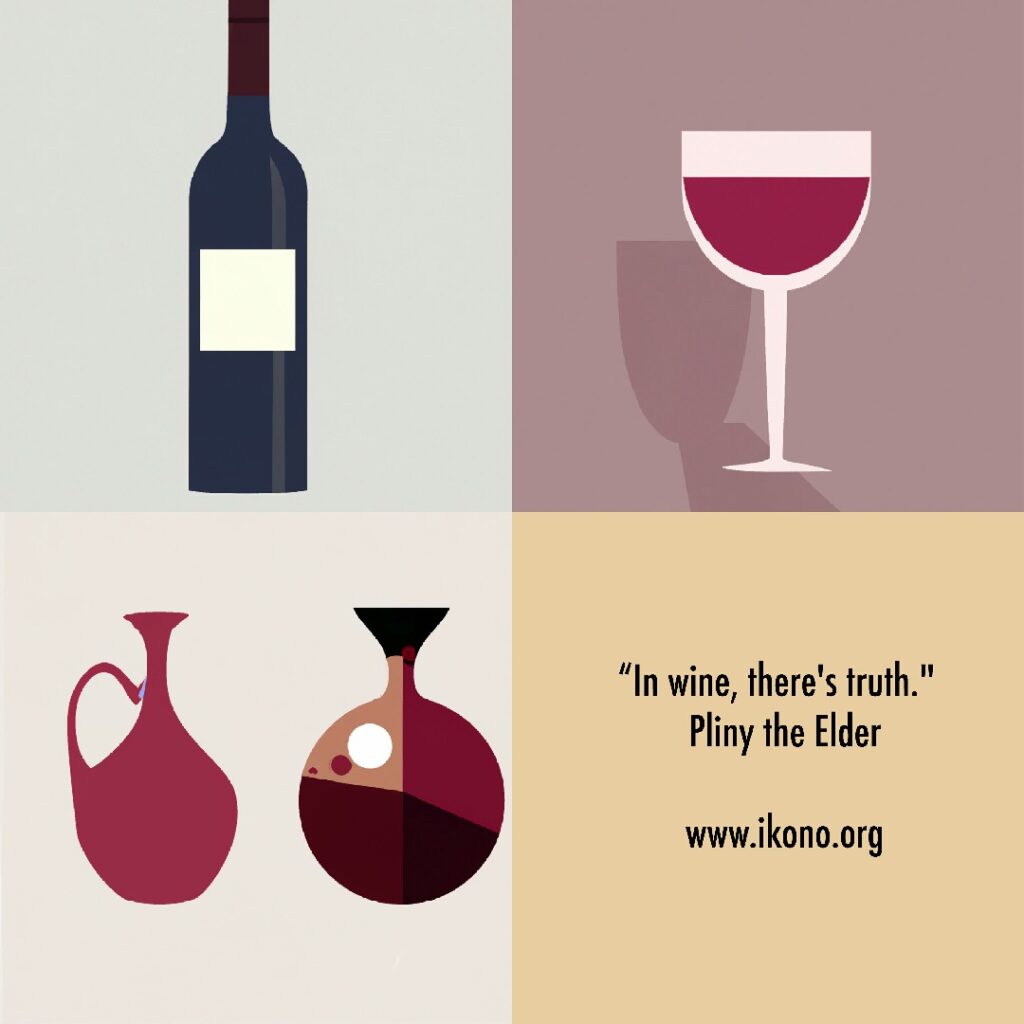
5. Utilize Email Marketing
Email marketing is a highly effective way to keep your audience engaged and informed about your latest offerings, promotions, and events. Build your email list by offering incentives for signing up, such as discounts, exclusive content, or entry into a giveaway. Create targeted and personalized email campaigns that deliver valuable content and encourage action, like purchasing wine, attending an event, or sharing your content with friends.
6. Optimize Your Website and SEO
An attractive, user-friendly website is essential for showcasing your wines, sharing your brand story, and facilitating online sales. Ensure your website is optimized for search engines, incorporating relevant keywords like wine varietals, regions, and production techniques. Additionally, create a seamless user experience with clear navigation, engaging visuals, and easy-to-find information.
7. Encourage Customer Reviews and Testimonials
Positive reviews and testimonials can help build trust with potential customers and influence their purchasing decisions. Encourage your satisfied customers to leave reviews on platforms like Google, Yelp, and social media, and feature their glowing testimonials on your website and marketing materials. Respond to both positive and negative feedback, demonstrating your commitment to customer satisfaction and continuous improvement.
With the help of Ikono, the lifestyle brand marketing agency, and by incorporating both traditional and digital marketing strategies, wine producers can create a comprehensive and effective approach to promoting their brand and connecting with their target audience. With a strong focus on engaging experiences, quality content, and authentic storytelling, your wine marketing efforts are sure to yield success in the competitive world of wine. Cheers to your marketing achievements!


